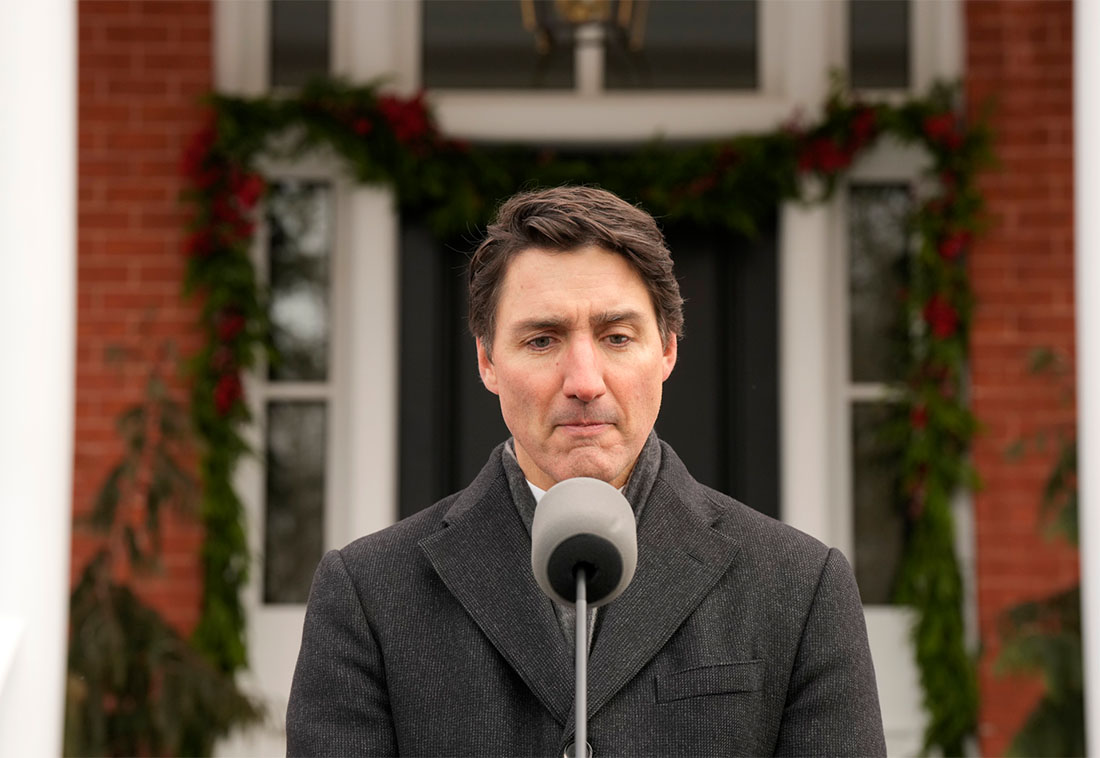Photo Credit; Getty Images
Canadian Prime Minister Justin Trudeau, after nine years in office, is preparing to announce his resignation, marking the end of an era for the Liberal Party. Trudeau, who rose to power in 2015, will reveal his decision on January 8, 2025. This announcement comes at a time when his popularity has sharply declined amid rising inflation, a housing crisis, and increasing voter disillusionment. With polls showing his party's worst pre-election standing in over a century, it has become clear that Trudeau's leadership no longer garners the support it once did.
Trudeau's tenure, once marked by progressive policies and international praise, began to falter two years ago. Public discontent grew as Canadians faced soaring food prices and housing shortages. At the same time, the political landscape shifted, with the Conservative Party gaining momentum. In response to mounting pressure from within his own party, Trudeau is now expected to step down, though he will remain in office until a replacement is selected.
The resignation of his key ally, Finance Minister Chrystia Freeland, in December 2024, marked a pivotal moment in the Liberal Party's crisis. Freeland's resignation came with a stinging letter that questioned Trudeau's ability to navigate economic challenges, particularly in the face of potential tariffs under the incoming U.S. administration.
Freeland's departure, combined with other internal tensions, left Trudeau in a weakened position. The New Democratic Party, which had previously supported the Liberal government, also withdrew its backing, further complicating the prime minister's situation.
His leadership, which once brought stability to the country, is now being questioned from multiple fronts. Opposition leader Pierre Poilievre has called for an immediate election, echoing concerns that Canada's government is unraveling under Trudeau's stewardship. Despite these challenges, Trudeau has vowed to stay on as prime minister until a leadership race is concluded, which could take several months. However, the pressure is mounting, with some expecting a federal election to be called as early as spring 2025.
The unfolding situation underscores the fragile nature of political careers and the volatility of public opinion. Trudeau's resignation will bring an end to his family's long-running political dynasty, as he is the son of former Prime Minister Pierre Trudeau.
His legacy, once seen as emblematic of progressive governance, will now be overshadowed by a leadership crisis and a shift in Canadian politics. As his tenure comes to a close, Trudeau's departure serves as a reminder of the transient nature of political power, especially in times of economic and social upheaval.


